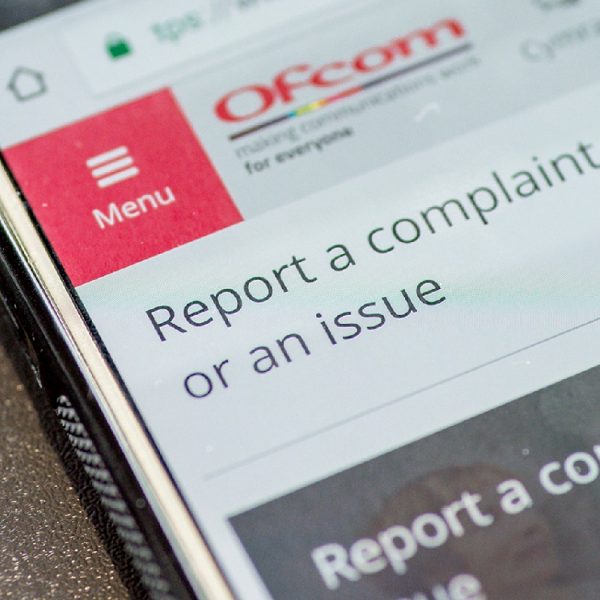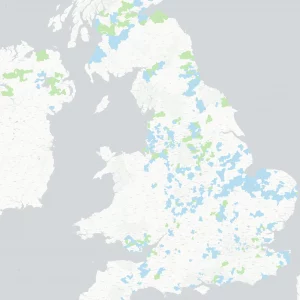Sponsored Links
Government Toughens RIPA to Prevent UK ISPs Abusing Personal Internet Privacy
Posted: 10th Nov, 2010 By: MarkJ

 UK based broadband providers (ISPs) that attempt to abuse their customers personal online privacy, such as by monitoring what websites (URL's) you visit, could find it harder to introduce related systems in the future due to several newly proposed amendments to the government's Regulation of Investigatory Powers Act 2000 (RIPA).
UK based broadband providers (ISPs) that attempt to abuse their customers personal online privacy, such as by monitoring what websites (URL's) you visit, could find it harder to introduce related systems in the future due to several newly proposed amendments to the government's Regulation of Investigatory Powers Act 2000 (RIPA).The move is directly related to the previous government's inability to clamp down on Phorm , which controversially worked with broadband ISPs (e.g. BT Webwise) to monitor what websites customers visited for use in targeted advertising campaigns.
BT in particular caused outrage when it emerged that they had run two secret trials of Phorm's technology on customers, without their consent, during 2006 and 2007. At the time many likened the Deep Packet Inspect (DPI) technology used by Phorm to Spyware.
The then Labour government steadfast refused to acknowledge the problem, though the European Commission (EC) has since proven less forgiving and in September 2010 referred the UK to the EU Court of Justice for failing to fully implement its related internet and email privacy rules (here).
As a result the new coalition government, which in fairness only came to power a few months earlier, has thus been forced to take a tougher line. The result is a series of new RIPA proposals today, including one aimed at tightening up the all important issue of "consent".
RIPA Background
RIPA makes provision for lawful interception without a warrant under certain limited circumstances. These include the provision in section 3(1) where both the sender and intended recipient of the communication give their consent to the interception, or where the person carrying out the interception “has reasonable grounds for believing” that consent has been given.
The interception of communications will involve the processing of personal data, and it is important to ensure that there is clarity about the circumstances in which lawful interception can take place.
RIPA makes provision for lawful interception without a warrant under certain limited circumstances. These include the provision in section 3(1) where both the sender and intended recipient of the communication give their consent to the interception, or where the person carrying out the interception “has reasonable grounds for believing” that consent has been given.
The interception of communications will involve the processing of personal data, and it is important to ensure that there is clarity about the circumstances in which lawful interception can take place.
Due to this ambiguity some ISPs and related UK organisations, including the City of London Police (CLP), believed that those who unwillingly took part in such trials were bizarrely deemed to have given their "implied consent". Under the new proposals that could prove a lot more difficult.
RIPA Proposal
The current provisions do not provide the required clarity. This is because “reasonable grounds for believing” is open to different interpretations. We intend to remove the ambiguity in section 3(1), and thereby ensure that the provision is consistent with the definition of “consent” supplied by Article 5(1) of the E-Privacy Directive and Article 2(h) of the Data Protection Directive.
The Directives make clear that consent to interceptions of electronic communications by persons other than users must be “freely given specific and informed”. The changes to section 3(1) will help to ensure that those who use the provisions in section 3(1) of RIPA to intercept communications, including internet service providers offering value added services, are clear that consent has been given by both parties so as to make the interception lawful.
The current provisions do not provide the required clarity. This is because “reasonable grounds for believing” is open to different interpretations. We intend to remove the ambiguity in section 3(1), and thereby ensure that the provision is consistent with the definition of “consent” supplied by Article 5(1) of the E-Privacy Directive and Article 2(h) of the Data Protection Directive.
The Directives make clear that consent to interceptions of electronic communications by persons other than users must be “freely given specific and informed”. The changes to section 3(1) will help to ensure that those who use the provisions in section 3(1) of RIPA to intercept communications, including internet service providers offering value added services, are clear that consent has been given by both parties so as to make the interception lawful.
The government is also proposing new sanctions against those deemed to have made an "unlawful" interception, which naturally wouldn't apply to requests by UK security forces. At present there are two options on the table, a criminal or civil sanction, both of which could leverage a maximum fine of up to £10,000.
That's hardly going to put any big companies off. The Information Commissioner's Office (ICO) would also be given new powers to issue such fines, obtain all of the relevant information and send cease notices to those deemed to be in breach. Those affected would of course be able to appeal.
Jim Killock, Executive Director of the Open Rights Group (ORG), said:
"BT and Phorm breached thousands of people’s privacy by opening their web traffic without consent. Now the Home Office have been forced by Viviane Reding and the EU to review our interception laws.
Holding a consultation on key privacy protections for barely four weeks, and failing to publicise it, is a disgrace. This is the latest in a long line of Home Office botches."
"BT and Phorm breached thousands of people’s privacy by opening their web traffic without consent. Now the Home Office have been forced by Viviane Reding and the EU to review our interception laws.
Holding a consultation on key privacy protections for barely four weeks, and failing to publicise it, is a disgrace. This is the latest in a long line of Home Office botches."
The new rules, which are currently being consulted on until 7th December 2010, could have far reaching implications. TalkTalk recently got itself into hot water (here) for failing to inform both the ICO and subscribers that it was conducting a controversial new security trial on them.
Part of TalkTalk's new service, which the ICO also likened to Phorm, effectively followed customers around the internet and made an anonymous record of the website addresses (URLs) they visited. TalkTalk claims that the system doesn't record any personal data and is thus safe from RIPA.
However website addresses can also contain personal data, such as usernames or other private details; sometimes even the location of the URL on a website can be sensitive (i.e. revealing an admin login page). Countering to the ISP's claim, this kind of information would not ordinarily be visible to the wider public or search engines like Google, although TalkTalk's unique system would have visibility.
The New RIPA Proposal (PDF)Elsewhere, in loosely related news, the UK Home Office has released its business plan for 2011-2015 and confirmed that new proposals designed to "End the storage of internet and email records without good reason" will be published in December 2010. However it could take until June 2015 before the full legislation that results is implemented. This relates to the controversial £2bn Interception Modernisation Programme (IMP), which was revived last month (here).
http://www.homeoffice.gov.uk/publications/consultations/ripa-effect-lawful-intercep/ripa-amend-effect-lawful-incep?view=Binary
Search ISP News
Search ISP Listings
Search ISP Reviews
Latest UK ISP News








Cheap BIG ISPs for 100Mbps+
150,000+ Customers | View More ISPs
Cheapest ISPs for 100Mbps+
Modest Availability | View More ISPs
Latest UK ISP News
Helpful ISP Guides and Tips
Sponsored Links
The Top 15 Category Tags
- FTTP (5511)
- BT (3514)
- Politics (2535)
- Openreach (2296)
- Business (2260)
- Building Digital UK (2243)
- FTTC (2042)
- Mobile Broadband (1972)
- Statistics (1788)
- 4G (1663)
- Virgin Media (1619)
- Ofcom Regulation (1460)
- Fibre Optic (1393)
- Wireless Internet (1389)
- FTTH (1381)
Sponsored
Copyright © 1999 to Present - ISPreview.co.uk - All Rights Reserved - Terms , Privacy and Cookie Policy , Links , Website Rules

































